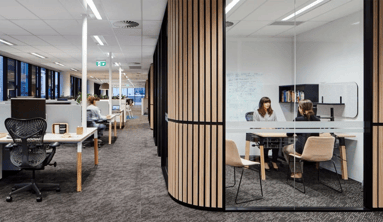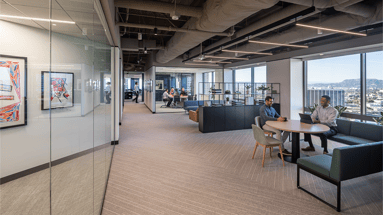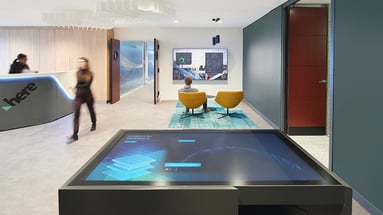Creating an engaging workplace for professional services employees
In the rapidly evolving professional services industry and hybrid working landscape, creating an engaging workplace that counters the "out of sight, out of mind" perception has become paramount.
In today's hybrid work environment, professional services companies face unique challenges when it comes to employee engagement. With hybrid work here to stay, employees in this sector are hesitant to go into the office for tasks they can do from the comfort of their homes. To bridge this gap and create a workplace that fosters engagement, professional services firms must adapt their work environments to meet the needs of their employees.
Countering the "out of sight, out of mind" perception
of employees believe their remote counterparts lack an equal voice in meetings
A key challenge employers face in the professional services industry is the "out of sight, out of mind" perception. This mindset hinders inclusive discussions and collaboration efforts, especially when employees are working remotely. Our Global Workplace Insights research revealed that 61% of employees believe their remote counterparts lack an equal voice in meetings. This perception underscores the critical need for integrating inclusive collaboration tools designed to foster a sense of belonging and ensure that every team member, irrespective of their location, is equally heard and valued.
To overcome this, workplaces must not only prioritize integrating inclusive collaboration tools but also actively encourage their use to promote active participation and equal engagement among both in-office and remote employees. By creating an environment where every employee, whether working from the office or remotely, feels heard and included, professional services companies can substantially enhance overall employee engagement. This approach ultimately strengthens team dynamics, fosters a cohesive work culture, and drives better business outcomes by leveraging the diverse perspectives and talents of all employees.
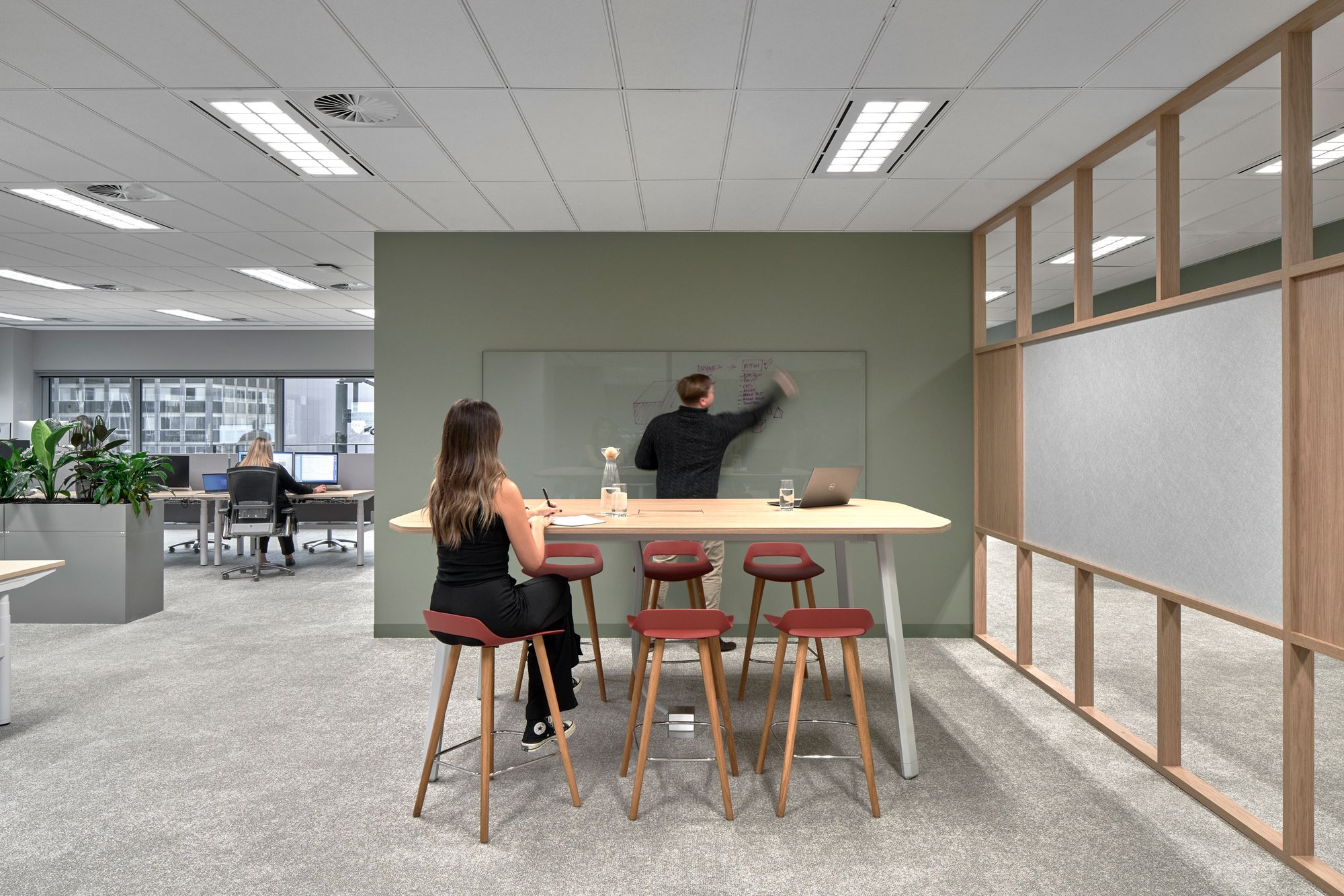
Mitsui & Co.'s workplace experience breaks down barriers and caters to employees' needs.
Create a sense of FOMO
In addition to fostering inclusive collaboration, professional services companies should focus on creating event spaces, social hubs, and recreation areas within the office. These spaces are not just amenities; they play a crucial role in cultivating a robust sense of community. By encouraging employees to come into the office, these areas ensure that team members don't miss out on the fun and camaraderie of the workplace. Organizing team gatherings, all-hands meetings, and themed events create a compelling sense of FOMO (fear of missing out), which draws professionals back to the office environment.
This strategic approach boosts employee engagement, reinforces company culture, strengthens team bonds, and enhances overall job satisfaction. Being physically present in these engaging environments encourages spontaneous interactions and brainstorming, nurturing innovation and creativity. As a result, such initiatives greatly enhance the office atmosphere, making it vibrant and dynamic, where everyone feels more connected and motivated.
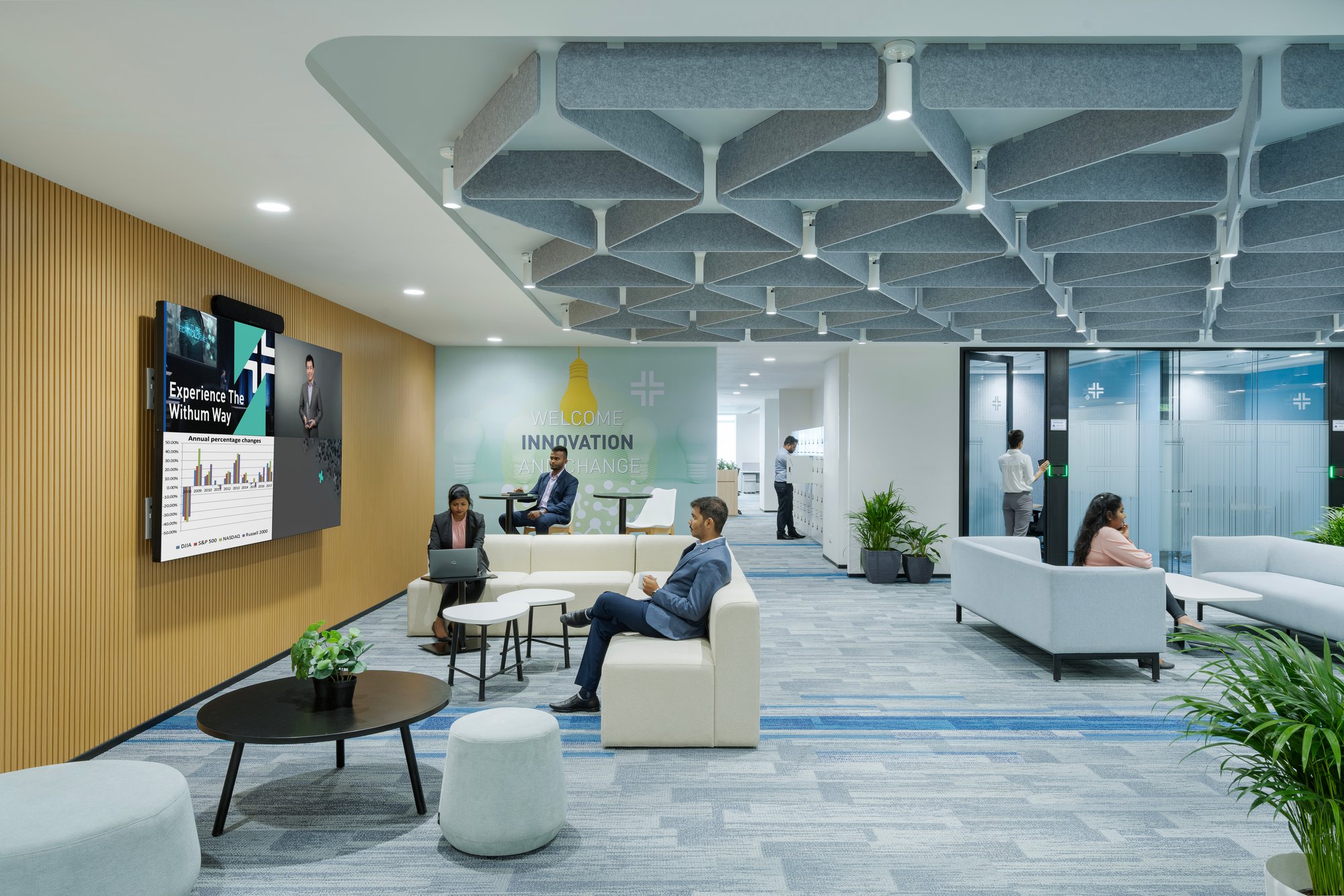
Withum's inspiring workplace features a large central area with a variety of work settings to foster creativity and connectivity.
Adapting to a changing landscape
As we look towards the future, professional services companies must consider the industry's evolving landscape. Like the finance sector, professional services will face increasing competition for highly sought-after skilled positions. This includes software engineers, data modeling experts, and data analysts. To attract and retain this talent, companies will need to reimagine their workspaces and dedicate approximately 40-50% of their space to social, community, and hospitality zones.
The conventional neighborhood model, where teams or groups are assigned specific work areas, may no longer be the most effective solution. Instead, professional services workplaces can adopt a clubhouse or airline lounge model, striking a balance that keeps employees engaged and connected while allowing flexibility to work with clients and from home.
